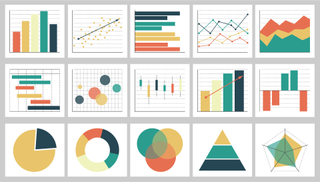California’s Fullerton School District recently received a grant from the Dell Foundation to create data dashboards that bring together student information from various tracking tools.
Combining these different data sets will tell a more complete story about each student, says Jeremy Davis, the district’s assistant superintendent of innovation and instructional support.
“If a kid's chronically absent, there can be 10 reasons why,” he says. “What you don't want to do is just go find students and say, ‘Come to school.’ You want to be able to look at their whole child surveys and say, 'Oh, well, three of these students don't feel safe at school. There's a problem. I need to go find these three students and find out why they don't feel safe at school. Turns out, they're feeling bullied. That's why they don't show up. They actually liked school a lot.’”
Ultimately, the goal is to treat the whole child, Davis says.
To get various types of data on a given student requires what amounts to detective work on the part of an educator. “Right now, you have to go grab their behavioral data from here, and go grab their chronic absenteeism from there, and then you have to go ask somebody for their i-Ready data over here,” Davis says. “So a lot of people give up after a couple of data points.”
With the new system the district is developing with a partner, principals will be able to view those data points in one place, which will empower them to better understand the struggles of individual students and recognize broader trends.
For instance, Davis will be able to compare test scores with edtech app usages, which should be able to help him identify the tools that are actually making an impact. “So I might be able to say, 'Gosh, students who spend an average of 15 minutes per week on this app see tremendous gains, but students who use this other app see no gains whatsoever, so we shouldn't buy that app anymore,” he says. “We're looking at gathering up just all this data, to be able to then pick apart all these different areas, to make sure what we're doing as a district is working for students.”
Data Interoperability
Gathering data in one place might sound easy but it’s a complex undertaking. Various apps and education tools have programs that are incompatible, and even the terminology is inconsistent.
The Ed-Fi Data Standard is a set of rules that allows educational data systems to connect and there is a growing movement toward data interoperability, except many of the tools used by The Fullerton School District still do not work with the Ed-Fi standard.
To get around this the district is working with Videri, an analytical application owned by Instructure, the developer of the Canvas LMS. “We pay them to take a set of data and make it work in Ed-Fi,” Davis says. This converted data then shows up on the school district’s dashboards.
Data Dashboard Tips
Davis advises being realistic about the time it will take to develop effective data dashboards. “We've been at this literally almost a year,” he says. That’s longer than he anticipated when they started, so he advises others to temper their expectations in regard to schedules for implementing this type of system.
Gathering the actual data is only the first step. “I've seen districts that hire data teams, but then they find there's not a lot of usage of the data itself,” he says. To encourage usage, he says ease of use is key. That’s part of what appealed to him about Videri -- he says it is easy enough to use that anyone who can put together a slideshow can set up their dashboard.
Even with an easy-to-use interface, Davis says it’s important to ensure stakeholders are part of the conversation and are comfortable working with the technology.
“The last thing you want is to spend a couple of years making all this amazing, and spending a bunch of money, and then nobody uses it,” he says. “You want people on board from the beginning as a team.”


